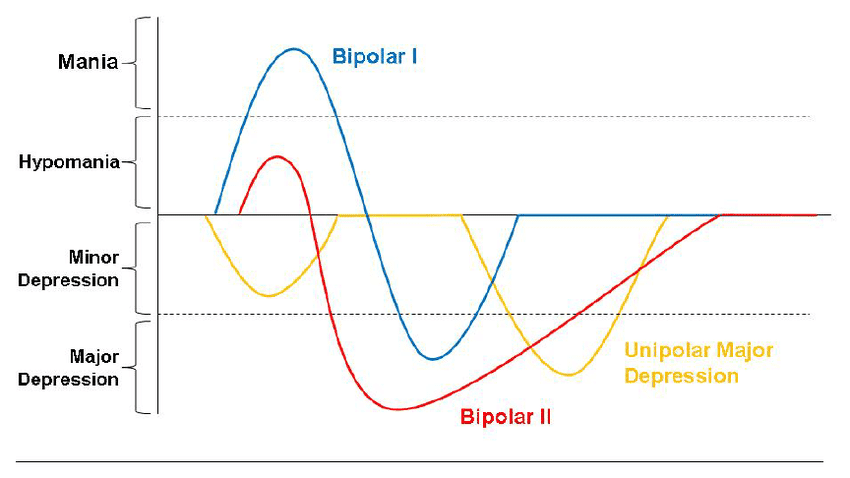Mania Test
3 Min Free Mania Test
Who Can Benefit From This Mania Test?
A mania test can benefit individuals who are experiencing symptoms of mania or bipolar disorder. These symptoms may include feelings of euphoria, extreme energy or restlessness, decreased need for sleep, racing thoughts, impulsivity, risk-taking behavior, and grandiosity.
The mania test can help determine whether an individual is experiencing symptoms of mania or bipolar disorder, and can provide valuable information for healthcare professionals to make a diagnosis and develop a treatment plan.
People who have a family history of bipolar disorder, have previously experienced episodes of mania or depression, or have experienced significant stress or trauma may also benefit from a mania test.

Mania Test Accuracy

The accuracy of a mania test can vary depending on the type of test used and the experience and qualifications of the healthcare professional conducting the test.
Mania tests typically involve a comprehensive evaluation of the individual’s symptoms and behavior, including clinical interviews, self-report measures, and psychological tests. By using multiple sources of information, a more accurate and comprehensive assessment can be obtained.
It is important that the healthcare professional conducting the mania test has experience and expertise in diagnosing and treating bipolar disorder and related conditions. They should be familiar with the diagnostic criteria and able to differentiate between mania and other conditions that may present with similar symptoms.
Types of Mania Test
Clinical interviews:
A healthcare professional will conduct a comprehensive interview with the individual to gather information about their symptoms, history, and behavior.
Psychological tests:
These tests are used to assess cognitive abilities, attention, and other aspects of the individual’s functioning. Examples of tests used for mania include the Wisconsin Card Sorting Test and the Stroop Color and Word Test.
Behavioral observations:
A healthcare professional may observe the individual in different settings, such as at home or work, to assess their behavior and symptoms.
Clinician-administered scales:
These are rating scales completed by a healthcare professional to assess the severity of an individual’s symptoms. Examples of clinician-administered scales used for mania include the Young Mania Rating Scale (YMRS) and the Clinician-Administered Rating Scale for Mania (CARS-M).
Psychophysiological measures:
Brain scans, such as magnetic resonance imaging (MRI) and positron emission tomography (PET) scans, may be used to identify abnormalities in brain structure or function that may be associated with mania and bipolar disorder.
Self-report measures:
These are standardized questionnaires that ask individuals to report their symptoms and experiences. Examples of self-report measures used for mania include the Altman Self-Rating Mania Scale (ASRM) and the Hypomania Checklist (HCL).
Treating Mania
The treatment of mania typically involves a combination of medication, psychotherapy, and lifestyle changes. Treatment plans will be tailored to the individual’s needs and may vary based on the severity of symptoms and other factors.
- Medication: Medications such as mood stabilizers, antipsychotics, and benzodiazepines may be used to help stabilize mood, reduce symptoms of mania, and prevent future manic episodes.
- Psychotherapy: Psychotherapy, such as cognitive-behavioral therapy (CBT), can help individuals learn to manage their symptoms and develop coping strategies. Family therapy may also be helpful in supporting the individual and their loved ones.
- Lifestyle changes: Lifestyle changes can also be helpful in managing symptoms of mania. Regular exercise, a healthy diet, and good sleep habits can all contribute to better overall health and may help reduce symptoms of mania.
- Hospitalization: In severe cases of mania, hospitalization may be necessary to stabilize mood and ensure the safety of the individual.
- Support groups: Joining a support group, either in-person or online, can provide individuals with bipolar disorder a sense of community and connection with others who are experiencing similar challenges.

